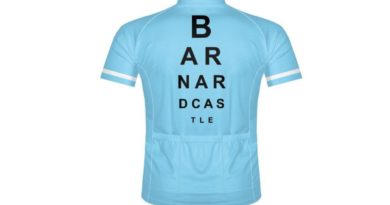Ask the trade: Can suppliers help shops through a recession?
The second part of our ‘cost of doing business’ assessment again leans on Brink UK and the Afan Valley Bike Shed, this time probing the idea that bikes will do well from a recession…
 With a recession mooted by the Bank of England from Q4, what is your feeling on how this will affect consumer spend on cycling sales given (in theory) it could save people money?
With a recession mooted by the Bank of England from Q4, what is your feeling on how this will affect consumer spend on cycling sales given (in theory) it could save people money?
Mat Clark, Brink UK
I think eBike demand combined with credit options like 0% finance and especially Cycle to Work schemes will become more prevalent in the next few years. Unfortunately for retailers offering these options, each can substantially erode an already tight margin, so it will be interesting to see some of the more creative options we can come up with.
Pay options like Klana and Paypal are going to be a focus for us going forwards, as well as even cryptocurrency check-out options.
I do think workshops will always do well during a recession with consumers looking after the bike they already have rather than splashing out on new equipment, so positioning your workshop to good quality and good value right now would be a sensible place to start future-proofing your turnover.
Ben, Afan Valley Bikeshed
People will have to choose where they spend their money as putting food on the table is more important than buying a new tyre. The other side is that at the moment people’s mental health has really been tested over the last couple of years and I personally feel that getting out and going for a ride is very good for you to relax and contemplate how you plan to deal with what is in front of you. We have also spoken to a couple of GPs and they have said getting people on bikes may be a good (and now prescribed) way to help their fitness.
What help would you like from supply partners to ease trading stresses?
Mat Clark, Brink UK
Leaning on technology more would make the biggest difference. There should be more discussion and work going on around API stock feeds for retailers into distributors’ warehouse stock. The ability to sell slow-moving stock directly to the consumer takes away the traditional bottleneck of “in-stock/out-of-stock” for everyone involved and helps to maintain margin with retailers able to sell outliers like extra-small or XXL bikes. This is without having to buy into those riskier models and/or discount them when they haven’t sold.
We have also been asking our supply partners to assist us with geotargeted digital adverts for each of their respective brands to help drive traffic to our site and footfall to our store. This is something I hope we can expand on going forwards and something I think will make a huge difference to the turnover of stock, as well as giving brands a way to maybe clear obsolete stock without the retailer having to discount, or the distributor having to extend terms, for instance.
I think as an industry if those two activities can be utilised better, or at all, we would find there will be some huge efficiencies found that will benefit everyone and we can all get back to riding our bikes a bit more.
Ben, Afan Valley Bikeshed
We have been asking to extend our terms to help pay for things. They all know we are good for it and have never not been paid, but it just gives us a bit more time to spread the costs, rather absorb them all in one go.
Also, I know it’s been hard over the last couple of years, but more realistic delivery dates so when customers are asking about ordering a bike we can be confident on taking a deposit and the customer getting the bike on time and not 6-12 months later.



